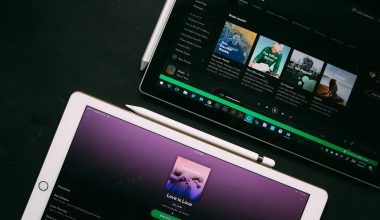Are you looking to start your musical journey and wondering which is the easiest musical instrument to learn? You’re not alone! Many beginners face the same question as they step into the fascinating world of music. With so many options, it can be overwhelming to decide. The good news? There are instruments that are beginner-friendly, fun to play, and easy to master.
This guide will walk you through the easiest musical instruments to learn, why they’re beginner-friendly, and how to choose the best one for you.
Why Learn a Musical Instrument?
Learning a musical instrument has countless benefits, including:
- Improved focus and discipline: Practicing an instrument sharpens your mental focus.
- Stress relief: Playing music is a great way to unwind and relax.
- Social connections: Join a band or perform with others for a sense of community.
- Creative expression: Music is a fantastic outlet for your emotions and creativity.
Choosing an easy musical instrument can help you reap these benefits without feeling overwhelmed.
Factors That Make an Instrument Easy to Learn
Before diving into the list of the easiest musical instruments, let’s explore the qualities that make an instrument beginner-friendly:
- Simplicity: Instruments with fewer strings, keys, or techniques are generally easier to learn.
- Accessibility: Instruments that are affordable and widely available make learning more feasible.
- Quick results: Instruments that produce clear and pleasant sounds with minimal effort keep beginners motivated.
- Versatility: Instruments that fit multiple genres allow beginners to experiment with different styles.
The Easiest Musical Instruments to Learn
Here’s a detailed look at the instruments considered the easiest for beginners.
A. The Ukulele
The ukulele is often hailed as the easiest musical instrument for beginners.
- Why It’s Easy:
- Only four strings, making chords simple to learn.
- Lightweight and portable.
- Soft nylon strings are gentle on fingers.
- Beginner Tips:
- Start with basic chords like C, G, Am, and F.
- Practice strumming patterns to develop rhythm.
The ukulele is perfect for learning popular songs quickly and building confidence.
B. The Recorder
The recorder is a simple wind instrument ideal for beginners of all ages.
- Why It’s Easy:
- Lightweight and inexpensive.
- Simple fingering system.
- Requires minimal breath control.
- Beginner Tips:
- Start with basic melodies like “Hot Cross Buns.”
- Learn to read sheet music for better progress.
The recorder is a staple in music education and a great starting point for wind instruments.
C. The Keyboard
The keyboard is versatile and user-friendly, making it a favorite among beginners.
- Why It’s Easy:
- Clearly labeled notes (white and black keys).
- No need to tune like string instruments.
- Many keyboards have built-in tutorials and rhythms.
- Beginner Tips:
- Start with simple songs like “Twinkle Twinkle Little Star.”
- Practice scales to develop finger strength and dexterity.
The keyboard provides a foundation for learning other instruments like the piano.
D. The Cajón
The cajón is a box-shaped percussion instrument that’s simple yet effective.
- Why It’s Easy:
- Requires no formal training or sheet music.
- Play by tapping different areas to create beats.
- Portable and affordable.
- Beginner Tips:
- Focus on basic rhythms like 4/4 time.
- Experiment with different tapping techniques for variety.
The cajón is ideal for rhythm enthusiasts and pairs well with acoustic performances.
E. The Harmonica
The harmonica is a pocket-sized instrument that’s fun and easy to play.
- Why It’s Easy:
- Small and portable.
- No need for prior musical knowledge to start playing.
- Can produce melodies and chords simultaneously.
- Beginner Tips:
- Start with a diatonic harmonica in the key of C.
- Practice simple songs like “Oh Susanna.”
The harmonica is great for blues, folk, and country music lovers.
How to Choose the Right Instrument for You
When deciding on the easiest musical instrument for your needs, consider the following:
- Your interests: Choose an instrument that matches the genre you love.
- Your budget: Some instruments, like the recorder and ukulele, are more affordable.
- Space and portability: If you’re short on space, opt for compact instruments like the harmonica.
- Learning style: If you prefer digital tools, the keyboard offers many online learning options.
Tips for Learning Your First Instrument
No matter which instrument you choose, these tips will help you stay motivated:
- Set small goals: Aim to learn one new chord, scale, or song each week.
- Practice regularly: Consistency is key to improving your skills.
- Seek guidance: Use online tutorials, apps, or a teacher for structured learning.
- Join a community: Share your progress with fellow learners to stay inspired.
How to Stay Motivated on Your Musical Journey
Learning an instrument is rewarding but requires patience and effort. Here’s how to stay motivated:
- Celebrate small wins, like learning your first song.
- Explore different styles and genres to keep practice sessions exciting.
- Set a practice schedule to build a habit.
- Remember why you started and envision your progress.
The Easiest Musical Instrument for YOU
There’s no one-size-fits-all answer to the question of the easiest musical instrument to learn. The best choice depends on your preferences, goals, and commitment. Whether you’re drawn to the cheerful ukulele, the versatile keyboard, or the rhythmic cajón, the most important step is to start.
Conclusion:
Choosing the easiest musical instrument is the first step to unlocking a world of creativity and self-expression. With dedication and practice, you’ll soon find joy in creating music that resonates with you and others.
So, pick an instrument that excites you, set realistic goals, and embrace the journey. Your path to musical discovery awaits!
Related Articles:
For further reading, explore these related articles:
- Discover the Most Difficult Instrument to Play
- Mini Musical Instruments: A Comprehensive Guide to Tiny Tunes
- Discover the Best Cheap Musical Instruments for Beginners
For additional resources on music marketing and distribution, visit Deliver My Tune.




